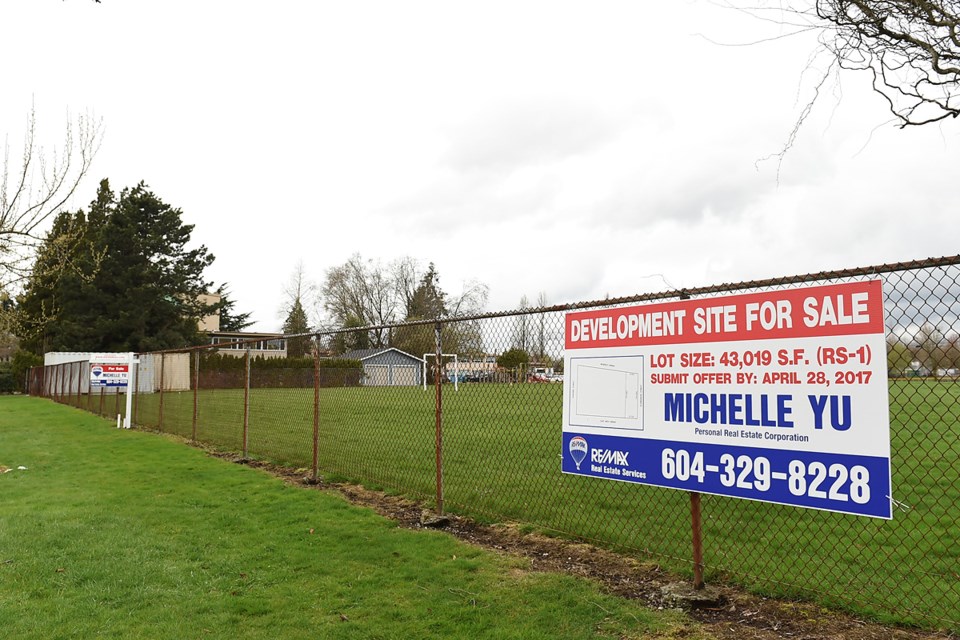Metro Vancouver’s real estate market may no longer be “red hot,” but a for a typical single-family home doesn’t offer much hope to those being squeezed by the unrelenting housing affordability crisis.In 2018, all levels of government took steps to fix the problem and improvements were made.
However, the most promising step came just before year’s end when the City of Â鶹´«Ã½Ó³»voted to study how a Land Value Capture (LVC) could help address the crisis – a powerful tax policy idea that is gaining considerable momentum across B.C.
Put simply, an LVC is a tax on speculation directed at landowners making windfall profits from skyrocketing land prices. This is different from the school tax implemented by the provincial government last summer, which taxes all residential properties above a certain value. Instead, an LVC targets owners whose land value increased due to rezoning or major infrastructure projects paid for by public dollars, and it taxes a portion of this land lift.
To illustrate, let’s say a piece of real estate is vacant and is worth $100 million. A new SkyTrain station is built next door, and the land is rezoned for higher density so more people can access the new transit line. Overnight, the value of the property increases to $400 million because of its location and the rezoning, resulting in a $300 million profit. You then have to ask yourself, why is the landowner the only one who benefits, when millions of taxpayer dollars also went into creating this increase in land value?
Improvement over CACs and DCLs
Municipalities such as the City of Â鶹´«Ã½Ó³»currently tax development in the form of Community Amenity Contributions (CACs) and Development Cost Levies (DCLs). In the case of CACs, the process can be complex and opaque, lacking the transparency necessary for fairness and public confidence. CACs and DCLs are also just one-time charges on the speculative value of real estate, and as such, fail to capture the land value.
An LVC, on the other hand, taxes land on an annual recurring basis, which better reflects changes in land value and creates a more stable and transparent mechanism to capture value from public investment.
Once in place, the LVC would generate significant funding for transit projects, other public amenities and most importantly, subsidize affordable housing – something CACs and DCLs are unable to do. At the same time, because investors have to factor the LVC into their project budget, this helps to limit speculation in the market, stabilizing prices over time.
In Metro Vancouver, this could also mean raising the funds necessary to support the extension of the Millennium Line to UBC, the Expo Line to Langley, as well as extend the Evergreen line to Port Coquitlam, by taxing the increase in speculative value of the real estate around new transit infrastructure.
Gaining momentum
In 2018, the Lincoln Institute of Land Policy in the U.S. launched a global campaign to promote the adoption of land value capture, noting that “government actions can cause the value of land to increase dramatically, and land value capture ensures that the public reaps the benefits.” In other words, our taxpayer dollars contribute to making land in our communities valuable, and citizens should see a return on their investment, not just developers and speculators.
The BC Government & Service Employees' Union (BCGEU) undertook extensive research and campaigning on the housing crisis, including consultation with renowned American economist Dr. Michael Hudson, and union leaders Jared Melvin and Harpinder Sandhu from CUPE 1767, which represents workers at the BC Assessment Authority. This work resulted in LVC becoming an essential plank of the union’s plan, , released in late 2017.
Key elements of the provincial and municipal versions of the Affordable B.C. plan have now been adopted and endorsed by several municipal politicians in the Lower Mainland and Victoria.
By implementing LVC, we can fairly capture a portion of the massive wealth being generated by real estate and use it to pay for transit and affordable housing stock. Only then can we return to the kind of stability where businesses can attract employees living nearby, students can afford to pay for school and rent, young families can stay in their communities and the elderly can age in place.
It’s time for smarter solutions to B.C.’s housing crisis.
was written by BCGEU treasurer Paul Finch, along with CUPE 1767 president Jared Melvin and vice-president Harpinder Sandhu



